
The results demonstrate a positive change in patients with previous disease-modifying drug failures.

The results demonstrate a positive change in patients with previous disease-modifying drug failures.

Patient data were evaluated over a 3-year period, with analyses from baseline, year 1, and year 2 presented at previous CMSC meetings.

Both diets resulted in patients with MS reporting significant changes on Perceived Deficits Questionnaire scores for fatigue and cognitive dysfunction after 12 weeks of intervention.
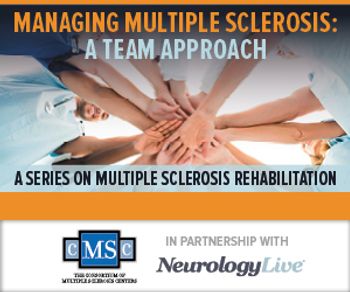
This series is brought to you by a partnership between NeurologyLive, the Consortium of Multiple Sclerosis Centers (CMSC), and the International Organization of Multiple Sclerosis Rehabilitation Therapists (IOMSRT).

In Part 2 of this interview, Bryan Davis, PsyD, MS, clinical health psychology fellow at Cleveland Clinic’s Mellen Center for MS, details the impact that conversations about masculinity norms in MS can have on future trials and care.
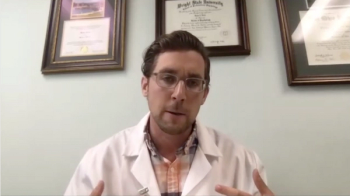
The clinical health psychology fellow at Cleveland Clinic’s Mellen Center for MS Treatment and Research at Cleveland Clinic details the interventions for men with MS and how the study can change the discussion on masculinity norms.

In Part 1 of this interview, the clinical health psychology fellow at Cleveland Clinic’s Mellen Center for MS Treatment and Research provides in-depth insight on his study evaluating masculinity norms in patients with multiple sclerosis.
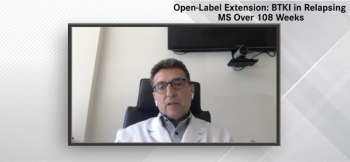
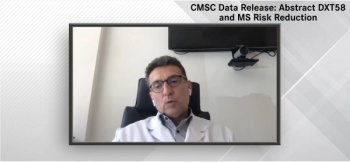
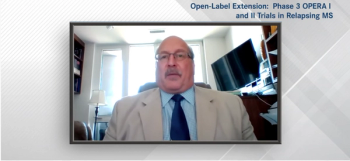
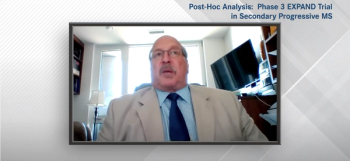

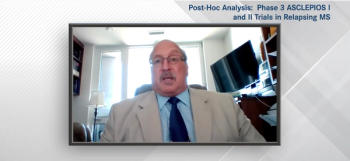
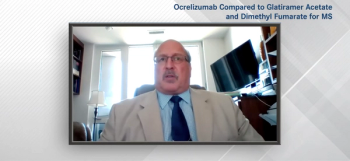


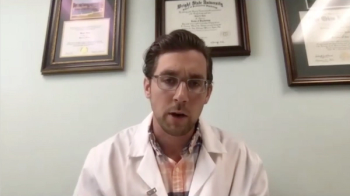
The clinical health psychology fellow at the Mellen Center for MS Treatment and Research at Cleveland Clinic details the use of behavioral health and potential use of Conformity to Masculine Norms Inventory (CMNI) tool in multiple sclerosis care.

Carrie Hersh, DO, MSc, assistant professor of neurology at the Cleveland Clinic Lerner College of Medicine, discusses recent data on natalizumab as well as what sets it apart from other multiple sclerosis treatments.

Head of Global Clinical Development in Neurology at EMD Serono discussed the findings of a phase 2 assessment of the company’s investigational BTK inhibitor evobrutinib in multiple sclerosis.

The vice president of Global Program Leadership in Neurology and Immunology at EMD Serono discussed the recent long-term phase 2 data on evobrutinib presented at CMSC 2020.
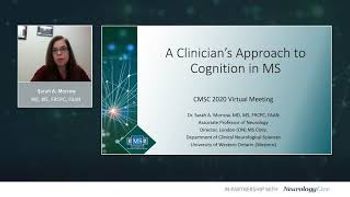
Sarah Morrow, MD, MS, presents her lecture titled, "A Clinician’s Guide to Cognition in MS" as part of the 2020 CMSC Virtual Annual Meeting.

Jennifer Graves, MD, PhD, presents her lecture titled, "The Role of Biological Aging in MS Progression" as part of the 2020 CMSC Virtual Annual Meeting.

Riley Bove, MD, presents her lecture titled, "Caring for Women Across the Reproductive Lifespan" as part of the 2020 CMSC Virtual Annual Meeting.
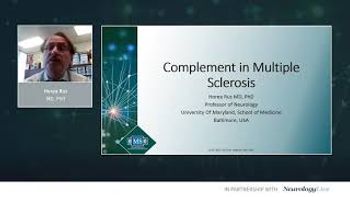
Horea Rus, MD, PhD, delivers his lecture titled, "The Role of Complement in MS" as part of the 2020 CMSC Virtual Annual Meeting.

Sergio Baranzini, PhD, presents his lecture titled, "Genetics Update" as part of the 2020 CMSC Virtual Annual Meeting.
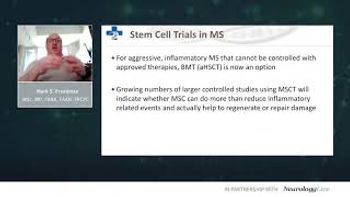
Mark Freedman, MSc, MD, presents the John F. Kurtzke Lecture, titled "Stem Cell Research Update" as part of the 2020 CMSC Virtual Annual Meeting.

Improvements in function may be mediated by an effect of aerobic fitness on deep gray matter brain structures.

An analysis of data from the phase 3 development of cladribine (Mavenclad; EMD Serono) showed that the incidence of treatment-emergent adverse events was low and most were mild in intensity.
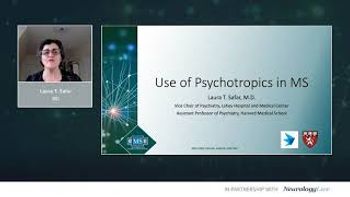
Laura Safar, MD, presents her lecture titled, "Use of Psychotropics in MS: Antidepressants, Anti-anxiety Agents, Mood Stabilizers, Hypnotics, Antipsychotics, and Cognitive Enhancers" as part of the 2020 CMSC Virtual Annual Meeting.

Allen Bowling, MD, PhD, presents his lecture titled, "Cannabis and MS: Efficacy, Safety, Drug Interactions, and Research Update" as part of the 2020 CMSC Virtual Annual Meeting.